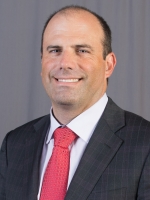ECE Seminar
Going Towards 6G
Robert HeathCockrell Regents Endowed Chair in Engineering #7The University of Texas at Austin
WHERE:
Remote/Virtual
WHEN:
Thursday, April 9, 2020 @ 12:00 pm - 1:00 pm
This event is free and open to the publicAdd to Google Calendar
This event is free and open to the publicAdd to Google Calendar
SHARE:

ABSTRACT:
A first version of the fifth generation of cellular communication systems, broadly known as 5G, has been completed. Despite the hype around 5G, the first release of the standard fails to incorporate new technologies, and falls sort of meeting expectations on new application verticals. In this talk, I will describe three areas of opportunity for the next generation of cellular systems. I will discuss the potential for going to even higher bandwidths, support for automated vehicles and automation in general, and the potential for machine learning to improve efficiency at different levels. In short, I will lay out a path for innovations to come in wireless systems during the next ten years.
Bio:
Robert W. Heath Jr. is a Cockrell Family Regents Chair in Engineering in the Department of ECE at The University of Texas at Austin, and Director of UT SAVES. He has received several awards including the 2017 EURASIP Technical Achievement Award, the 2019 IEEE Communications Society Stephen O. Rice Prize, and the 2019 IEEE Kiyo Tomiyasu Award. He authored “Introduction to Wireless Digital Communication” (Prentice Hall in 2017) and “Digital Wireless Communication: Physical Layer Exploration Lab Using the NI USRP” (National Technology and Science Press in 2012). He co-authored “Millimeter Wave Wireless Communications” (Prentice Hall in 2014) and “Foundations of MIMO Communications” (Cambridge 2019). He is currently EIC of IEEE Signal Processing Magazine. He will be a member-at-large on the IEEE Communications Society Board-of-Governors (2020-2022) and is a past member-at-large on the IEEE Signal Processing Society Board-of-Governors (2016-2018). He is a licensed Amateur Radio Operator, a registered Professional Engineer in Texas, a Private Pilot, a Fellow of the National Academy of Inventors, and a Fellow of the IEEE.
 MENU
MENU 
